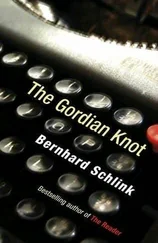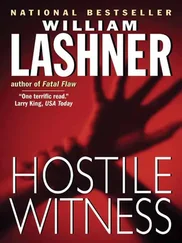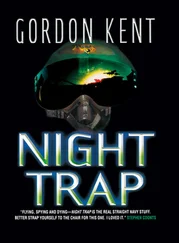About the same time, Dick Triffler took off from Washington.
Jakarta.
“Hello, Mister!”
Alan tried to ignore the swarm of aggressive children, each with his palm stretched up toward him in supplication. It was the morning after his arrival, stunningly hot, the streets steaming from a ten-minute downpour.
“Hello, Mister! Hello!”
The route on the map looked very clean and neat; here on the streets of Jakarta it was virtually impossible for a foreigner to decipher the name of any road, much less the maze of alleys ( gangs ) that had been marked for him to travel. He did his best, which was usually quite good, and found himself the only foreigner in what appeared to be the courtyard of a colorful and desperate tenement.
“Hello! Hello! Mister!”
Alan looked down at the sea of little faces that moved with him through the gang and took a folded bill from his shirt pocket and held it up.
“Anyone speak English?”
“Oh, Mister! Hello, Mister!” Like a children’s choir.
“Mister!” Hand raised in the affirmative. A chorus of Yes.
“I need a guide.” Alan didn’t think that James Bond required a nine-year-old to guide him through his surveillance detection route, but he wasn’t James Bond.
“Why don’t we practice?” he had asked Triffler, back in Washington. Triffler had explained to him that if the Indonesians or the Chinese or any other service were watching them, they couldn’t practice in Jakarta, because anyone observing the practice might be set up to watch the real thing. The explanation had confused him, because the military believed that people should practice complex evolutions, but he followed his orders, and here he was, lost in Jakarta Barat. At least, he hoped he was still in Barat. And Triffler, who was supposed to be with him, was—Alan hoped—still over the Pacific somewhere.
“ We won’t even meet. ” Triffler had been quiet, assured. “ You’ll see me at the end of the route, because I’ll be the signal that you’re clean. But we won’t hang out; we won’t be in the same hotel or travel together; nothing to link us.” Nonetheless, Alan was tempted to look for Triffler on every corner.
“I can speak Inglis, Mister!” one kid said. “Real Inglis, like you can understan’.”
Alan handed him the folded bill without hesitation, then withdrew a second bill before the boy’s eyes wandered or he contemplated flight. This one he held up ostentatiously and then put back in his pocket.
The boy launched into a torrent of abuse at his mates, most of whom vanished in an instant, although a few merely fell back as if waiting their turn.
Alan read the next street on his route to the boy, who nodded and set off at a fast walk. Alan followed, sweating. He liked the sweat. He had been right: it felt good to be doing something, even if he required a nine-year-old to help him.
A minute later, the boy stopped in a gang identical to the last, carpeted in the same bright trash that reeked of rotten fish.
“Here, Mister. What we do here? You buy batik? This not a good place for batik.”
Alan looked at the wretched row of shops, each offering its own batik and some of the “cap” cloth that every tourist seemed to want. Alan couldn’t see Rose in “cap.”
In Washington, Triffler had told him that every stop would “make sense.” “These things have to have a logic of their own, Alan,” he had said. “We depend on that logic to look natural.” Alan saluted him, mentally. I look like a natural lost tourist. To keep his cover, he pointed at a piece of cloth slightly less repulsive than the others and nodded at the price.
“He ripping you off,” his guide said, turning on the merchant. The exchange went on and on, getting louder and shriller; and then, suddenly, everyone smiled and Alan got a pile of cash back—too much, he thought, but the transaction seemed to have satisfied all parties.
“Now I want this one.” Alan pointed at the next destination on the list, marked “Fish Market.”
“Okay.” And they were off, Alan almost running to keep up, his batik (or cap, he couldn’t tell) clutched under one arm.
It certainly smelled like a fish market. This one he had checked out on the Internet—supposedly the oldest part of the city, with some parts dating to the fourteenth century. What was he supposed to do, buy some squid? He walked about for a few minutes, followed by the boy. The fishmongers shouted at him and each other, and he was reminded of his first visit to Africa and how alien it had all seemed. Jakarta was alien, too—almost more alien, with a sturdy structure of the ultra-modern, hung with a great deal of African-style poverty.
Beyond the fish market were boats, old sailing boats with brightly colored hulls and sharply raked bows and masts, and he moved toward them without really thinking. The boy followed, incurious, and Alan walked along the pier, threading through the piles of nets and watching them being mended in much the same way that nets were mended in Mombasa and in Gloucester, Massachusetts. The ocean didn’t seem alien. He felt as if he had his feet under him, and he smiled at the boy.
“You plan a hash run? That why you walk everywhere, Mister?”
Hash runs—long cross-city races over a course marked by hash marks—were a feature of expat life from Bahrain to Mombasa. Alan had run a few and had helped mark one, and he smiled at the boy, thankful for a better cover story than any he had been able to concoct.
“Fatahillah Square.”
Now for the real thing. Or the thing that probably meant nothing but might lead to something real. What Triffler called the “operational act.” As if this were some espionage performance art.
Alan crossed the square under the full weight of the sun and went to the gun, which had been here since the seventeenth century, had been loaded and used to keep surrendering Japanese from resisting in 1945, and now seemed to be the city’s leading fertility shrine. Si Jagur was the site he was to mark, the target set for him from the first meeting with Triffler and Dukas in Maryland.
He needed to get rid of the boy.
“Coke?” he said, miming unnecessarily to his guide. The boy stuck out a hand and Alan gave him some small colored bills. The boy vanished, and Alan walked up through a crowd of women, many of breathtaking beauty, to run his hands over the rims of the wheels on the old cannon. He touched it as if he were measuring it, as tourists often do, and many of the women giggled to see a man in such intimate contact with the old monster; things were said that might have made him blush or worse, and the older women didn’t hesitate to suggest that men often had their own failings.
This part he did well. He seemed no more interested than any Bule tourist, but when he moved back to the boy and his two lukewarm Cokes, he had left a white mark shaped like a Q high on the rim of the wheel.
Game on.
But as he picked his way back toward his hotel, he thought, I’ll like it better when Triffler gets here.
Bobby Li walked along the north side of Fatahillah Square, looking at nothing, moving purposefully toward his next business appointment—at least as far as a watcher would see. This was the third day he had walked through Fatahillah Square. When he came parallel to the ancient cannon, he stopped, covered his look at the cannon by glaring at a little girl who tried to beg, and moved off again, his head down, his stride again purposeful.
In fact, his glance had caught the mark, high on the wheel of the gun, and his heart was pounding because it was too soon—he hadn’t been able to get a stun grenade; Andy was drinking a lot and Bobby wasn’t sure of him; and he was nervous about actually getting the ragtag team together so fast. Still, he walked on, planning the moves that would take him to another place to leave his own mark to tell Andy about the mark on the cannon. And then Andy would call him. And then tomorrow morning, they’d go to the Orchid House and—
Читать дальше












